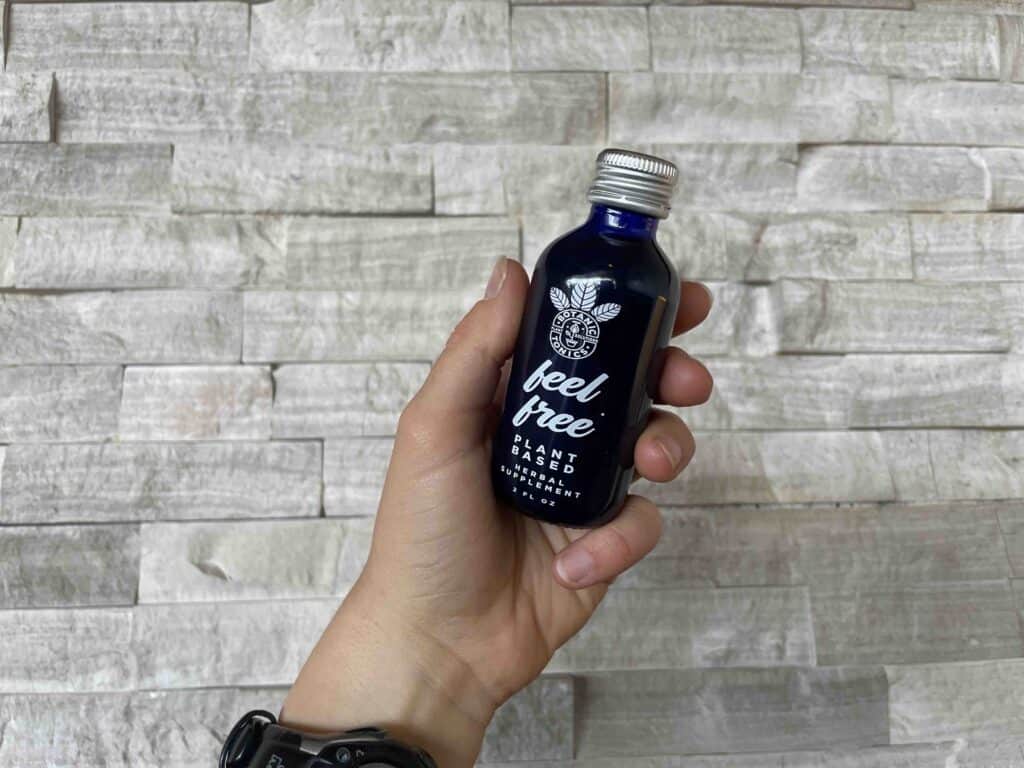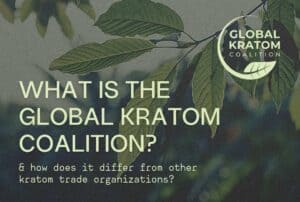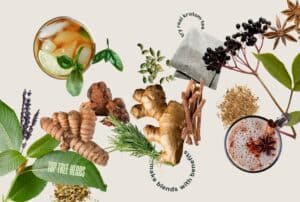If you’ve looked online for kratom vendor reviews, you may find the advice confusing or even contradictory. Wondering which kratom brands to stay away from, wether or not it’s bad to buy kratom from a gas station, or what the worst and best head shop kratom brands are?
Worst vs. Best Kratom Vendors
Sorting out the “best kratom vendors” from the “worst kratom vendors” is not as simple as conducting a quick Google search. With so many kratom stores competing with one another and a multitude of brands touting the superiority of their products, it’s easy to get lost in the dense layers of marketing tactics.
It can be quite the challenge to determine if a company truly offers high-quality kratom. When even vendors with a generally bad rap are getting good reviews, how can you recognize which kratom brands to stay away from?
We’re here to help you answer this tricky question.
We’ll cover what separates the good kratom vendors from the “bad” and which signs will help you determine whether or not you want to stay away from a kratom brand.
Why You Should Use Discretion When Choosing a Kratom Vendor
Before we get into our thoughts on which kratom brands to stay away from, let’s discuss why it’s essential in the first place to find a reputable kratom vendor.
Burgeoning Botanicals Market
Kratom’s rapid rise in popularity in the US has made the kratom industry an attractive market for many new and aspiring companies. On a much larger scale, the botanicals market as a whole is even projected to reach a value of $203.7 billion by 2032, making it a highly appealing niche for profit-seeking businesses.
Thanks to the kratom market’s growth, consumers can now choose between hundreds upon hundreds of kratom vendors. Yet, not all vendors have joined the kratom industry for the same reason.
Profit-Motivated Kratom Vendors
As the kratom market is overflowing with new businesses, you’re bound to encounter a varied landscape in terms of the quality and reputability of different kratom brands.
Some kratom vendors will, inevitably, be much more focused on practices that will make them a quick profit than on the practices that prioritize customers’ wellbeing. So, how do you separate the vendors who are just after a quick buck from the vendors who go above and beyond for the kratom community? And why does it matter which kratom brand you support?
While it’s good to be as mindful as possible as a consumer of any product, we think it’s especially important to put care into where you buy kratom. There are broad ethical reasons to support reputable brands as a consumer, as well as individual health reasons. You don’t waste your money on a poor product, especially one that could have long-term impacts on your wellbeing.
Kratom consumers can be a driving force behind kratom activism, legality, and education. Even if you don’t participate in kratom politics, you can “vote with your dollar” by buying from vendors that follow regulations.
Not All Vendors Support Kratom Regulation or Follow Guidelines
As many kratom advocates know, the legality of kratom in the US is a complex issue. Ideally, kratom would be regulated at the federal level by the Food and Drug Administration (FDA). The FDA has the ability to set standards and guidelines for products that all kratom vendors across the country must meet.
However, kratom is not yet approved by the FDA. It remains unregulated at the federal level (though there has been some movement on federal kratom regulation in the last year). Thus, in the US, kratom regulations are determined by individual state governments.
As regulation is integral in protecting the safety and confidence of kratom consumers, the American Kratom Association (AKA) created a set of guidelines for regulating kratom via the Kratom Consumer Protection Act (KCPA). Some states have passed bills to enact their own KCPA or have created a unique bill with similar guidelines to regulate kratom manufacturing and sales in their state.
In the majority of states, however, kratom is not yet regulated. The lack of standardized regulations and oversight can be challenging for both consumers and vendors to navigate.
Fortunately, more and more states are introducing similar bills to regulate kratom. For example, in the spring of 2023, New Jersey introduced a kratom bill that would regulate kratom products in the state if passed.
A Good Vendor Should Support Kratom Regulation
In many states, legislation has been passed to create standards for quality and transparency. These include Good Manufacturing Practices (GMP), third-party lab testing for quality, and proper labeling to make sure customers know exactly what they’re consuming. Many states also restrict the sale of kratom to people under age 18 or 21.
When these laws are enacted and enforced, consumers are better protected from irresponsible or misleading kratom vendors.
However, if you’re in a state where kratom is not yet regulated, you may encounter vendors who don’t take it upon themselves to follow quality control measures. These extra safety steps are expensive, and would force vendors to increase the cost of their products. Lower costs may be enticing for consumers, but the lack of quality control can cause serious issues.
Historically, some vendors have adulterated their products with other ingredients to alter their effects, or have sold products with fillers that look like kratom to save money. Cutting down on the amounts of impure or poor-quality kratom circulating around benefits individuals and the entire kratom community.
So look for a vendor who opts to self-regulate the kratom they sell and follow the guidelines for producing and selling kratom, even in states where kratom is not yet regulated.
How to Identify Kratom Brands to Stay Away From
Regulation aside, how do you scope out which kratom brands to stay away from?
- Lack of transparency
- Adulterated products
- Misleading marketing claims
- Negative customer reviews
- Kratom recalls, warning letters, seizures, and lawsuits
Though we’re a kratom tea company, we’ve kept the following list as unbiased as possible. We take our responsibilities as a brand to heart. The following suggestions align with the purpose of kratom regulation, which is first and foremost to protect consumers’ health and wellbeing.
1. Lack of Transparency
What does transparency mean in the kratom industry? Transparent kratom vendors should:
- Identify all ingredients contained in a particular product.
- Provide the concentration of kratom alkaloids and other ingredients if applicable.
- Be honest about the product’s effects;
- Refrain from making any claims about effects that haven’t been scientifically demonstrated or that are legally prohibited.
- Provide contact information so that customers can reach them if they have any concerns.
For kratom consumers, transparency is essential when it comes to choosing what brand of kratom to buy. Reputable kratom companies understand the importance of consumer transparency and will make it a priority to keep their customers fully informed about their products and business.
When looking at a kratom brand’s packaging, ask yourself how much you know about the product you’re going to consume.
- Is there any information missing that you wish you knew about?
- Are you left in the dark about where the kratom came from?
- Do you know what ingredients are in the product?
- Do you know how to consume it?
- Would you be able to contact the company if needed?
In order to be completely transparent, a kratom brand should follow the regulations for product packaging. When looking at the kratom package, you should be able to find a complete list of ingredients as well as a means of contacting the company, whether it’s a phone number, address, or website. It’s also good to see information on sourcing and manufacturing processes. Some states also require a serving size or guidelines for consumption.
Brands that fail to disclose this kind of information should raise red flags. A lack of transparency or proper labeling could indicate that the product is of low quality and that the company doesn’t really care how much the customer knows.
They might just be out to make a profit with little regard for the kratom community’s values or the potential danger of contaminated products.
Thus, it’s vital to look for kratom brands that openly share details about their product’s ingredients, kratom sources, production methods, and testing procedures. Not all of this information needs to be on the package, but it should be easy to find on the website.
This transparency not only ensures product quality but also demonstrates a commitment to kratom consumer safety.
2. Adulterated Products
While rather rare these days, it’s not completely unheard of for kratom brands to include ingredients in their products that they don’t report on their labels. These products are considered adulterated.
Additionally, even if all of the ingredients in a product are listed on the label, some companies may be a bit careless about what ingredients they mix in with their kratom product.
Hiding Kratom from Ingredients Lists
A good example of this is the Botanic Tonics Feel Free tonic. For many years, Botanic Tonics refrained from listing kratom as an ingredient on the label or in any of their marketing materials for the kratom drink. Rather than list kratom as an ingredient, Botanic Tonics kept their Feel Free tonic’s ingredients list vague. They claimed it was a mixture of kava and “other ancient plants.”
Only recently did they start listing kratom on their product labels and on their website. Before that, many of Botanic Tonics’ customers had no idea they were consuming kratom in addition to kava. Even now, the answer as to just how concentrated their ingredients are still leaves people scratching their heads.

Currently, Botanic Tonics is facing a class-action lawsuit, which is largely related to their lack of transparency and aggressive marketing tactics.
Reputable brands, on the other hand, will employ rigorous testing and quality control measures to ensure the purity of their products. They hire independent labs to test their products to verify the absence of contaminants and adulterants.
Avoid brands that have been associated with adulteration or have received negative reviews regarding product quality. By choosing brands that prioritize quality and purity, you can mitigate the risk of consuming adulterated kratom.
3. Misleading Marketing Claims
Although not very common, some kratom brands make illegal and unsubstantiated medical claims about the alleged “benefits” of their kratom products. The FDA has not yet approved kratom as a supplement, food, or drug, which means kratom brands must follow strict rules for what they can say about their products.
It can be difficult for kratom vendors to market kratom when there’s so much they aren’t allowed to say, but a good kratom vendor will follow the laws regardless.
Not only is there insufficient research on kratom to make medical claims about kratom benefits and effects, but it’s also flat-out illegal for companies that sell kratom to make any claims about using kratom to treat or cure medical conditions. Making medical claims could result in a warning letter issued by the FDA or, even worse, a lawsuit. Importantly, such grandiose claims can mislead consumers and potentially endanger their health.
If you’re looking to buy kratom online and come across medical claims on a vendor’s website, we’d certainly advise that it’s a kratom brand to stay away from. If you feel up to it, you can reach out to the kratom company to let them know that they should remove the claims from their website.
Reputable brands, on the other hand, provide as much information about kratom as they can while acknowledging the plant’s limitations. Not only should a good kratom vendor refrain from making medical claims, but they should also provide adequate disclaimers on the packaging and website and encourage responsible and informed consumption.
Look for a kratom vendor who endorses kratom science and research, and is honest about the plant. In general, it’s advisable to consult with healthcare professionals before consuming kratom or any botanical food or supplement that you’re not familiar with.
4. Negative Customer Reviews
Before deciding to buy any product, it’s not a bad idea to look for consumer feedback on the company you’re considering. Reviews and testimonials from customers can often be a good indicator of the quality of the company’s products as well as its reputation and customer service. If the company doesn’t have customer reviews on its site (which is often the case for smaller, newer companies), you can look at kratom vendor reviews on Reddit, in kratom forums, or on other sites.
Keep in mind that articles reviewing kratom vendors are not always unbiased. It’s not uncommon for kratom companies to pay writers to publish a good review, calling them the “best kratom vendor,” etc. In and of itself, this isn’t necessarily a sign of a bad kratom vendor, but it’s something to keep in mind when doing research on the best kratom vendors.
When reading kratom brand reviews, pay attention to consistent negative feedback regarding product quality, customer service, or safety concerns. Vendors with a high number of dissatisfied customers or unresolved complaints should raise a red flag.
Reputable brands actively engage with their customers, respond to their concerns, and strive to improve their products and services continuously. A good response rate is a sign of a kratom brand that really cares about its customers.
5. Kratom Recalls, Warning Letters, Seizures, and Lawsuits
In recent years, there have been instances of kratom recalls, FDA warning letters, and legal actions due to concerns about contamination or adulteration of kratom products.
Kratom recalls especially highlight the importance of quality control. That’s why it’s beneficial to support brands that maintain up-to-date lab tests which are easily accessible on their website. When a recall is issued, it means that a specific batch or product has been identified as potentially hazardous. It’s essential to follow recall notifications and discontinue the use of any recalled products.
It is also important to stay up to date with the latest kratom news and look out for any kratom lawsuits that may arise. Every so often, kratom brands will find themselves on the wrong end of a lawsuit.
There are numerous reasons a kratom company could be sued and have its products seized. These include improper product labeling, illegal use of medical claims, adulteration, reports of adverse health effects, and violations of state mandates.
If a kratom company receives a warning from the FDA for illegal marketing claims, they should address it as quickly as possible and remove the claims.
Misrepresentations of the Kratom Plant: Why do Kratom Seizures Happen?
Take the issues mentioned above with a grain of salt. Kratom has been misunderstood by many individuals and groups throughout the United States, and misinformation can lead to unwarranted lawsuits or seizures of kratom products.
To better understand the issue, we can use lettuce as an example. In the past, the FDA has issued recalls on certain brands of lettuce because consumers were sick with E. coli linked to the lettuce. What happens after a recall like this? More care is taken in lettuce production to ensure quality and prevent contamination, and people move on and happily continue eating lettuce.
In the kratom industry, however, news of contaminated products has left people with misconceptions about kratom. Instead of being concerned about the contaminants found in kratom, people have become concerned about the plant itself. This has led to some seizures and lawsuits that blame the kratom plant for problems that actually stem from the lack of quality control and transparency in the industry.
When deciding whether or not to buy kratom from a vendor that has faced legal issues, look beyond media articles. Find the original citations, allegations, or warning letters to see if they cite real concerns or if they instead rely on outdated claims and misconceptions about kratom.
Don’t be afraid to ask a vendor questions if you have any doubts about their products. A good kratom vendor will take your concerns seriously. On the other hand, a kratom brand that is hard to reach, slow to adapt, and puts its own financial needs first is probably not one that you want to support.
We’ve Set the Bar High
Another way to discern which kratom brands to stay away from is to look at the best kratom vendors. What do they do that others don’t?
We don’t want to express biased opinions, but we’d like to share our practices as an example of what you should look for to identify the best kratom vendors. Top Tree Herbs was founded with the mission to provide consumers with a more trustworthy, traditional option for consuming kratom, and we’re not shy about explaining how we excel in putting this mission into practice.
- On our website, you can find up-to-date third-party lab test results for every kratom tea strain or other kratom product that we offer.
- We include recommendations for how to best consume our products on every product label. There’s also a wealth of knowledge on our kratom blog that provides more individualized recommendations for how to make kratom tea.
- You can find our contact information in multiple places on the website, and can reach out to us easily if you have any questions.
- We provide completely transparent information about our company, how we engage in kratom activism, and how we support kratom science.
Being a kratom company means more than just offering premium kratom tea and capsules. We believe that everyone in the industry has the ability to contribute more to the kratom community—to support the people who support us.
That’s why we became the first kratom tea company. We’re helping normalize kratom, one sip at a time.
Featured image by Christin Hume.





